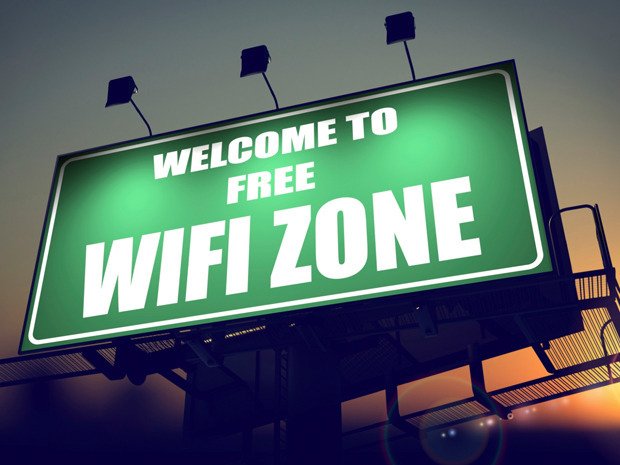The Technology Of Transmitting Information Through Radio Waves, Which We Know As Wi-Fi, In Addition To Being Very Easy To Use, Can Also Be Very Dangerous.
In the following, we will examine the seven ways that your confidential information may be leaked through the Wi-Fi connection and the ways to prevent it.
1- Using free hotspots

These days, you can find them in many places, and their number is increasing daily in our own Iran. But many of them are unreliable and when you log in to the network through these hotspots to send emails or even more sensitive user accounts, they can be hacked by hackers using software Known as sniffers (whose job is to collect any information you exchange over the network) can be exploited. Using a virtual private network (VPN), proxy can protect the data you send by encrypting it.
2- Online banking
You might think that because of the high security of banking systems, you shouldn’t worry about their safety when using free Wi-Fi. Still, cyber security company Kaspersky says that over 100 banks worldwide lost $900 million of their capital.
You are lost through cyber attacks. Therefore, you cannot rely too much on the protection systems of online banks, and you should note that there are various ways to steal your bank account information.
If you want to use the free Wi-Fi network of your coffee shop, which you completely trust in its security, ensure you are not connected to another network by carefully checking the network name. It is straightforward to set up an open connection through a router set up by someone else in the coffee shop and has a name utterly similar to the name of the coffee shop’s Wi-Fi network.
3- Keep Wi-Fi on all the time
When your phone’s Wi-Fi turns on automatically, it’s possible to connect to an unsecured network without you realizing it. This feature automatically turns off Wi-Fi when you are outside the range of your saved networks and turns it back on again when you enter the field of authorized networks. If your phone has location-based Wi-Fi, use it.
4- Not using a firewall
A firewall is your first line of defense against malicious intruders. The firewall only allows the exchange of helpful traffic through a computer connected to a network and prevents the penetration of hackers and malware. You should turn off your firewall only when your antivirus software has its firewall.
5- Browsing uncoded websites
Unfortunately, this statistic is accurate in that 55% of the top one million sites on the Internet do not use the coding system. An unencrypted website allows all data transmitted by hackers to be seen. Your browser will tell you when a site is safe. For example, in the Firefox browser, you will see a gray lock or a green lock icon displayed in the Chrome browser. But even a secure website can’t protect you from hijackers (those who can steal cookies from websites you’ve visited through a public network). slow
6- Not updating security software
If you want to protect your private network, upgrade your router’s firmware first. All you need to do is go to your router’s admin page and check if a new version of its firmware has been released. You can usually download the latest firmware version through the manufacturer’s website.
7- Your home Wi-Fi is not secure
Choosing a complex password and changing the default Wi-Fi connection name is essential. Also, you can determine which devices can connect to it with the MAC address filter in the router.